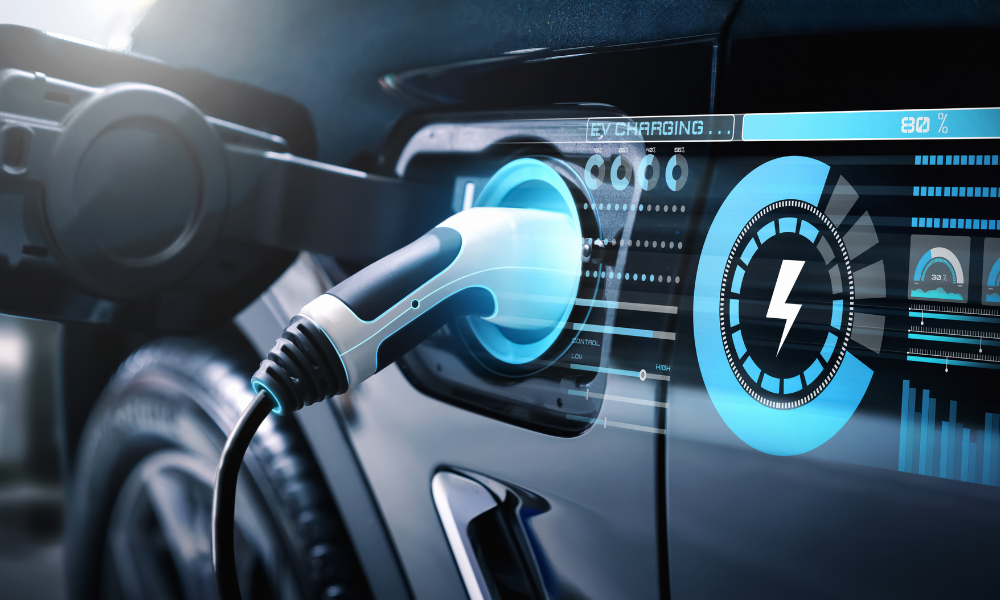Elliot Johnson says consumer confidence will only increase in coming years

The electric vehicle industry has seen a dramatic increase in market turbulence recently, as the impacts of tariffs, Tesla CEO Elon Musk’s politics and emerging Chinese products have caused uncertainty in the rapidly developing industry.
But the ever-improving technology, expanding consumer and automaker confidence in the products along with improving infrastructure gives Elliot Johnson faith in the long-term prospects of the industry’s profitability.
While attending a car show recently, Johnson noticed the emphasis automakers put on their EV models, suggesting a gradual transition away from gas powered vehicles, even as significant infrastructure challenges remain.
“The development of electric vehicles has not slowed down over the past three years,” said Johnson, CIO of Evolve ETFs. Evolve was the first firm to launch an entirely EV ETF in 2017.
“If you go to a car show … every single maker now is promoting either hybrid or fully electric more so than their legacy gas power products.”
Though traditional heavyweights in the automotive industry have invested heavily into EV production, Johnson says there is still a reluctance to abandon gas-powered cars due to lingering infrastructure challenges. A lack of amalgamation in charging stations is another hurdle in developing consumer confidence according to Johnson, who believes governments should become more involved in building user-friendly EV infrastructure.
“I think the challenge if you're running one of these other car companies is trying to assess market to demand for EVs versus your production schedule,” he said. “Until we see charging network development really increased by another order of magnitude, you're still going to have a lot of customers saying, ‘I'd rather have the gas car, because I know I can refuel my car anywhere I like.’”
Tesla’s stock has seen extreme volatility recently, soaring after US President Donald Trump’s election victory, then plummeting since Trump’s inauguration before rising again in the past week. While he says the stock is “super hard to own” due to its volatility, Johnson is confident in the long-term outlook for Tesla, particularly because of the company’s ventures into other technology spaces like AI and solar panels.
“Tesla investors are not taking into consideration that it is an AI and robotics company, not a car company,” he said.
While Musk’s political activities have certainly impacted the stock’s performance, Johnson says recent European stock drops were misunderstood by the public.
“Let's take for example their 40 per cent drop in deliveries in Europe in February,” he said. “This was anticipated before the US election, because Tesla told us that they were retooling their factories in Europe for the refreshed Model Y.”
Johnson distinguishes between sustaining and disruptive innovation, suggesting that the incremental improvements of EV infrastructure will also be boosted by the rapidly evolving yet heavily regulated self-driving vehicles products. According to Johnson, Musk’s role within the Department of Government Efficiency could lead to a loosening of regulations placed on the controversial sector.
“Given the access that Tesla has to the US federal regulatory framework because of Elon Musk, I think that's going to clear a lot of barriers,” he said. “Because at the end of the day, for this stuff to really work, you kind of need everybody to agree it's worth having, which means you need regulations to be put in place.”
Johnson likens the adoption of EV technology to that of the iPhone, where consumers gradually got on board once they experienced the
“As you see your neighbor get an ultra long-range EV that recharges quickly, then you start to look at your car and it feels old, and that one feels new,” he said. “When we all had Blackberries, and then the iPhone came out, then you start to say, ‘well, my Blackberry doesn't seem so exciting anymore.’”
Improvements in the range of Chinese-made BYD EVs has caused excitement in the product, though heavy tariffs placed by Western countries has largely blocked the vehicles from entering EU, US and Canadian markets. While the prospects of comparatively cheap Chinese-made EVs breaching the North American market has been discussed for some time, Johnson says the tariffs placed on the vehicles are relatively inconsequential at the moment.
“I've seen a grand total of zero of those vehicles in my life, and I pay attention to this sort of thing,” he said. “I hear they're very good, I read about them all the time. I'm sure they're great. They're not here, so why do I care if they're tariffed at one million per cent it makes no difference to me.”
However, Johnson did emphasize the importance of competition in the EV sphere, as more traditional brands could look to BYD products to improve their own.
“One of the nice things about technology is it's really hard to stop people from copying it,” he said. “So if they've actually made these improvements, you can bet that the engineers at places like Volkswagen and other companies that are looking to electrify their products are paying attention, learning the lessons and have a sense of how to then make their products better.”



